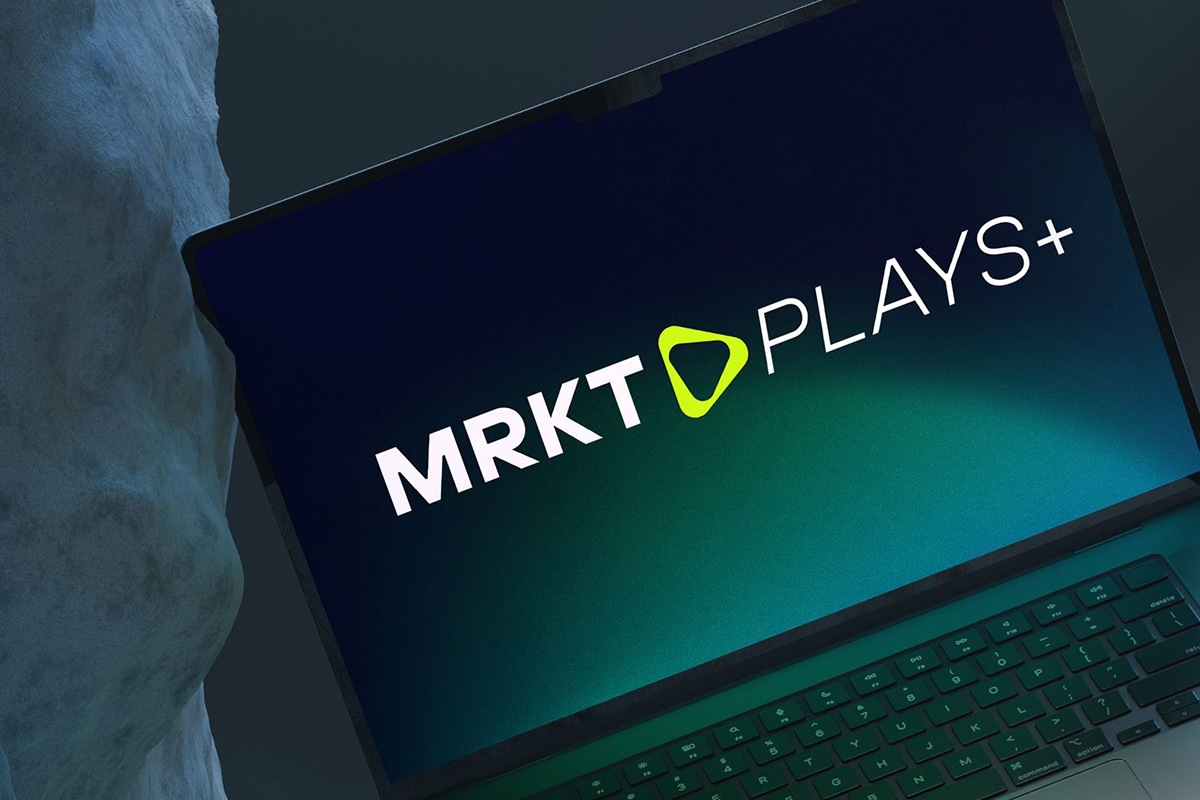Affiliate Industry
Affilka by SOFTSWISS Launches Poker Module

Affilka by SOFTSWISS expands the capabilities of its affiliate marketing tracking platform with the launch of a new module for poker sites. Affilka can now provide its services not only to online casinos and sportsbooks, but also to online poker sites.
The new poker module will enable clients operating online poker sites to take advantage of Affilka as well. The new module includes an updated API, which will be used to process user gaming activity on online poker rooms. In addition to click data, registrations, deposits, and cash-outs, the Affilka affiliate marketing platform will collect, store and process the following online poker player data:
- Poker Rounds Count – the number of rounds a player has played in a poker game
- Poker Bets Sum – the bet sum a player has placed in poker games
- Poker Rake Sum – the commission fee taken by the poker room operating a poker game
- Poker Bonuses Sum – the sum of bonuses issued to the player
- Poker Balance Corrections Sum – the amount of manual adjustments to the player’s balance
- Poker Third Party Fees Sum – any fees paid by an online poker room for various third party services
- Poker Net Revenue Sum – the poker site net profit excluding bonuses, balance adjustments, and third-party fees.
Along with the API update, the Affilka team expanded the Сommission Сonstructor for CPA, RevShare and Hybrid deals (a combination of CPA and RevShare).
Under the CPA model, affiliates are paid for a specific player action or combination of actions. When calculating CPA deals poker sites will be able to take into account such parameters as time from a player registration to a deposit (or meeting other qualification criteria), whether a player has an active self-exclusion limit as part of responsible gaming practises, duplicate players, and a user status (verified or blocked). From now on, for CPA payments, not only player deposits but also poker player activities, such as Poker Rake Sum per player or Poker Bets Sum per player can be taken into account. So, in order to pay an affiliate partner the CPA reward for a referred player, the player must deposit a specified amount during a specified period and/or the Poker Rake Sum from that player and/or their Poker Bets Sum must reach a certain amount.
When using the RevShare model, the poker site pays the affiliate a percentage of the revenue. A poker site owner may pay affiliates a percentage of the gross revenue which is the rake generated by the referred players. The owner may also pay a percentage of the Net Revenue (rake minus bonuses, balance adjustments, third-party fees such as payment system fees, taxes, poker network fees, etc.).
“I am pleased to announce the launch of the long-awaited poker module that will expand Affilka coverage. Not only casinos and sportsbooks but also online poker sites will now be able to use our platform’s unique tools to acquire new players. Poker is an important part of the iGaming industry, so we have worked hard to offer our software solution for poker rooms”, commented Anastasia Borovaya, Product Owner at Affilka.
When it comes to postbacks, they have also been refined. In addition to the classic postbacks for registration, first deposit, any deposit, qualification, as well as casino and sportsbook NGR, Affilka has added postbacks for Poker Rake Sum and Poker Net Revenue Sum. Moreover, qualifying postbacks now include variables containing the Poker Rake Sum values of a qualifying player.
The Affilka affiliate management software platform allows casinos, sportsbooks and poker sites to run affiliate programs in order to promote their businesses. With Affilka’s tools, it is possible to track the effectiveness of affiliate programs, organise work with affiliates and analyse player behaviour.
About SOFTSWISS
Affilka by SOFTSWISS is an affiliate management platform for iGaming operators. The platform enables operators to manage affiliate partners across multiple brands, optimise marketing spend, and analyse player ROI from partners.
SOFTSWISS is a widely–acclaimed iGaming expert, supplying certified software solutions for managing online gambling operations. The company has an international team, which counts 1,000+ employees and has an official presence in Malta, Belarus, Poland and Georgia. SOFTSWISS holds a number of gaming licences, including Curacao, Malta, Estonia, Belarus, Belgium, Sweden, Nigeria, Ghana, Serbia and Greece. The company has a vast product portfolio, which includes an Online Casino Platform, Game Aggregator with thousands of casino games, the Affilka affiliate platform, Sportsbook Platform and the Jackpot Aggregator. In 2013 SOFTSWISS was the first in the world to introduce a bitcoin–optimised online casino solution.
Powered by WPeMatico
Affiliate Industry
Catena Media Launches MRKTPLAYS+ to Expand Strategic Partnerships in North American iGaming

Catena Media announced a strategic evolution of its successful MRKTPLAYS subaffiliation platform, designed to meet market demand and deepen long-term partnerships across the regulated North American online casino and sports betting markets.
The launch of MRKTPLAYS+ enhances Catena Media’s existing subaffiliation model, introduced in 2025, by adding a modular partnership framework built to accelerate partner growth for publishers and adjacent digital businesses that have demonstrated product-market fit.
Alongside standard campaign access, MRKTPLAYS+ will offer tailored marketing and operational support including content and marketing advisory services, as well as working capital solutions and minority equity participation – all in accordance with partner needs and maturity.
The expanded offering will help high-potential partners scale more efficiently while strengthening long-term collaboration within Catena Media’s partnership network.
Pierre Cadena, Catena Media Chief Operating Officer, said: “MRKTPLAYS+ is a natural evolution of our subaffiliation model. It enables us to work more closely with selected partners by combining access to campaigns with operational support and, where appropriate, strategic capital. This approach is designed to support sustainable partner growth while reinforcing the quality, resilience and diversification of our revenue streams.”
The MRKTPLAYS+ launch aligns with Catena Media’s broader strategy of diversifying revenue streams, deepening strategic partnerships and building scalable platforms that support long-term value creation. The platform will be open to partners globally, with a core focus on North America.
The post Catena Media Launches MRKTPLAYS+ to Expand Strategic Partnerships in North American iGaming appeared first on Americas iGaming & Sports Betting News.
Affiliate Industry
Beyond Bonuses: Shaun Decesare’s Mission to Redefine Affiliate Integrity in iGaming

Reading Time: 5 minutes
Vision & Motivation
You mentioned this was a “pipedream 10 years in the making.” What finally gave you the push to take the leap into owning and rebuilding an affiliate site?
It was always a dream of mine to have my own business and ‘be my own boss’ so to speak. I’ve taken an interest in the iGaming sector from a very young age and I knew this was instantly a passion of mine. What gave me the impetus to take the leap was twofold. The first being that I had been delaying this for too long, I decided that this is it, I will take the leap of fate and live and die by my decisions. The Second being I wanted to get out of the monotonous 9-5 routine. Having a young family, I want to prioritise spending as much time with them as possible. Doing this has allowed me to do that.
What does success look like for you with CasinoBonus360—not just in terms of traffic or revenue, but in how the brand is perceived by users?
Taking the site back to its glory days of the late 2010s, having witnessed first hand the success of this whilst at my former role within Catena Media, I know its potential is through the roof. I want CB360 to be a trusted, well reviewed site that users can check out all brands with confidence that this is not just a money grab. The users are being put first.
Why is trust such a central pillar in your vision for the site? What do you think has eroded trust in this space, and how do you plan to rebuild it?
Trust is at an all time low in this industry, scams are everywhere you look. As a consumer, this is evident in all forms of the gambling industry. I want to right the wrongs of others and attempt to restore the faith back to what it once was. We plan to rebuild it through various means, such as delivering a top quality service to all our new and existing users. One that is meaningful and long lasting. This will triumph over any quick financial gain.
 Editorial Direction & Content Strategy
Editorial Direction & Content Strategy
You’ve emphasized tougher editorial standards and evergreen content. What does your editorial process look like now compared to the previous version of the site?
We are not comparing ourselves to anyone else because we do not know how other teams operated. The shift has to happen inside the own workflow. In the past, things were faster, more intuitive and less documented. Today the process is far more deliberate with clear research steps, structured fact checking, internal reviews, consistent criteria and a final quality pass. It is a more mature and more disciplined version of how we used to work, still personal but with higher standards and better control.
How are you ensuring your reviews and guides are genuinely useful to users rather than just SEO-driven?
We start with real user questions and not with keyword lists. Every claim needs a source or a test reference. If a keyword does not fit naturally, we leave it out. The content must read smoothly and help the reader get clarity and make a decision. Useful content performs better in the long run than keyword tactics.
Can you walk us through how your team scores or tests casinos? What makes your approach different from competitors’?
We play for real. We register, verify, deposit, withdraw and talk to support. We score what happens, not what is promised. No gut ratings and no hidden deals. Every score follows the same criteria and the same pressure test. If a casino fails on trust or transparency, it gets called out.
What are some examples of content you’ve either removed or completely rewritten during the rebuild—and why?
Anything that wasted space or repeated nonsense is gone. Old fluff bonus pages, outdated lists, weak guides and duplicated topics were cut. Only the content that delivers real answers survived. Everything else was removed because it did not deserve attention.
 SEO & Technical Evolution
SEO & Technical Evolution
You’ve worked with an SEO/site manager to shift toward a more data-driven SEO approach. What’s been the biggest mindset shift in how you approach SEO now?
We stopped chasing keywords and started aiming for accuracy. SEO is now a data tool, not a shortcut. We choose topics where we can deliver real value and real testing. No more trying to win fast. The goal is long term authority, not temporary spikes.
You’ve spoken about moving away from “keyword stuffing.” How do you balance SEO goals with writing content that feels natural and user-focused?
We write like humans and fix anything that sounds robotic. SEO helps with structure, but it never dictates the voice. If the text feels fake or over optimized, it gets rewritten. Users come first. Algorithms follow later.
What are the key technical improvements you’ve made (or plan to make) to the site’s infrastructure to support long-term stability and performance?
We stripped the site down and rebuilt it in a way that does not break every time the internet sneezes. The code is cleaner, the plugins are trimmed down, caching is actually doing its job and every asset is optimized instead of thrown in raw. The structure is modular so we can grow without creating a monster we cannot maintain.
We also stopped pretending that Google is the only gatekeeper. Search is shifting toward AI driven answers, so the site needs to be fast, clear and machine readable. That means better schema, tighter linking, cleaner layouts, consistent data structures and content that is easy for AI systems to interpret. The goal is not just ranking but becoming the source that AI tools pick because the information is solid and well structured.
 Industry Insights & User Perspective
Industry Insights & User Perspective
With your background in the gaming industry, what are the biggest misconceptions affiliate sites have about what players want?
Number 1 is surely welcome bonuses, these are a thing of the past. The average consumer is now smart enough to know that welcome bonuses are traps. They actually have the opposite intended effect of what they were originally designed to do. In fact, we are targeting brands that have as low of a wagering requirement as possible. We do not enlist brands that have over 20x wagering requirements. This is completely unrealistic to anyone to ever obtain any chance of a withdrawal. Gambling should be fun, it should not increase the anxiety of the user.
What red flags do you think users should be aware of when reading affiliate content on other sites?
Always check out the authors on site and see if they are real people, most sites put down fake characters for one reason or another which just erodes the authenticity of the brand. This is by far away my number 1 red flag.
How are you collecting feedback from users, and how does that inform your content and design decisions?
We are conducting surveys with our users on a monthly basis and asking for what they like and what they don’t like. This will allow us to adjust our articles and content accordingly. We firmly believe in consumer first at CB360 and this is the motto will stand by for the lifespan of our site.
 Looking Forward
Looking Forward
What challenges are you expecting in the next 6–12 months, and how are you planning to tackle them?
The number one challenge is to increase the traffic on site. Whilst we have overhauled all the outdated content with brand new, relevant, beautiful pieces of work, we are still struggling to see a big increase in traffic. This may be due to google updates that have hampered SEO of late. We are looking at all avenues into new avenues to increase traffic.
Do you see CasinoBonus360 expanding into new verticals, formats, or markets in the future?
For now, we shall take things one step at a time, we have a 12 month plan which we are executing, and should it come to fruition, we will examine our options further down the line.
If you could give one piece of advice to someone considering launching or rebuilding an affiliate site today, what would it be?
Get ready for a lot of work, it is easier said than done, but the rewards will be worth it.
The post Beyond Bonuses: Shaun Decesare’s Mission to Redefine Affiliate Integrity in iGaming appeared first on European Gaming Industry News.
Affiliate Industry
MelBet Partners to Bring UFC Champion Kamaru Usman to SiGMA Central Europe

Reading Time: < 1 minute
SiGMA Europe is one of the most significant events in the iGaming industry. This year, the event is taking place in Rome and will bring together over 30,000 attendees, 1200 sponsors and feature four stages with 550+ top speakers.
On November 05, in partnership with MelBet Partners & Affiliates, former MMA legend and World Champion Kamaru Usman will join the event as a special guest. At booth 5067G attendees of SiGMA Central Europe have the chance to take photos, hear insights and what it takes to rise to the top on a global stage.
During the conference, there will be two activities available for guests at MelBet’s booth:
Punch Challenge. Anyone can come to the booth on November 4 and test their punching power. The person with the strongest punch will have the honour of competing against Kamaru Usman himself.
Want to get exclusive merchandise and take a photo with the MelBet Partners & Affiliates championship belt? Visit the booth. Follow MelBet’s official Instagram account and take a picture with the belt. Those who post a story with the championship belt and tag MelBet will automatically be entered into a drawing for exclusive UFC-themed merchandise.
There will also be a private party, Triumph of the Gladiators, exclusively for the partners and representatives of MelBet Partners & Affiliates, which Kamaru himself will attend. This evening will be an epic event, where history and modernity merge into one.
The post MelBet Partners to Bring UFC Champion Kamaru Usman to SiGMA Central Europe appeared first on European Gaming Industry News.
-

 iGaming7 days ago
iGaming7 days agoPRAGMATIC PLAY UNEARTHS PROGRESSIVE MULTIPLIERS IN ROLLING IN TREASURES
-

 Comatel6 days ago
Comatel6 days agoCOMATEL CELEBRARÁ UNA FIESTA PARA CIENTOS DE OPERADORES TRAS FINALIZAR EL PRIMER DÍA DE LA FERIA ESPAÑOLA, INTERAZAR
-

 Booming Games7 days ago
Booming Games7 days agoBooming Games Introduces Instastrike, the Latest Diamond Hits Trio
-

 ELA Games7 days ago
ELA Games7 days agoELA Games Powers the Reels with Retro-Electric Slot “Rapid Wild”
-

 Alex Green Vice President Games at ZEAL7 days ago
Alex Green Vice President Games at ZEAL7 days agoWunderino Adds ZEAL’s Premium Slots as Partnership Kicks Off
-

 Blueprint Gaming7 days ago
Blueprint Gaming7 days agoNew collect modifiers and dual bonus offering star in Blueprint Gaming’s King Kong™ Splash
-

 Brasil7 days ago
Brasil7 days agoBrasil evita choque fiscal y apuestas entran en fase reputacional en LATAM
-

 Fotini Matthaiou6 days ago
Fotini Matthaiou6 days agoOctavian Gaming Titles Go Live with Novibet in Mexico



 Editorial Direction & Content Strategy
Editorial Direction & Content Strategy















